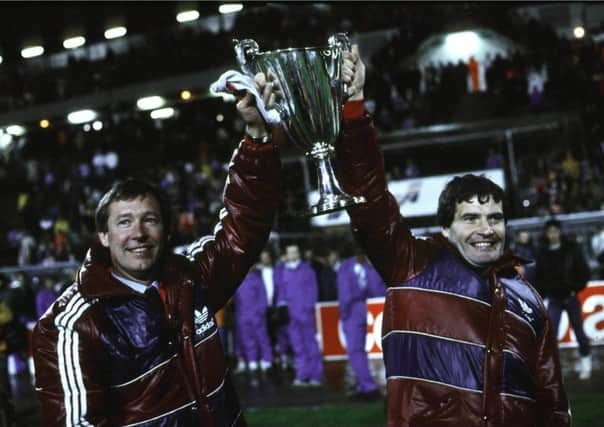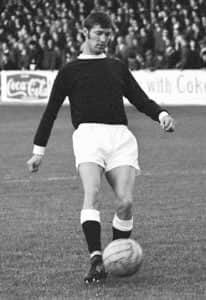Sir Alex Ferguson: the secret behind his success?


Sir Alex Ferguson’s illustrious career in football management famously began in modest circumstances at East Stirlingshire in 1974.
The Falkirk club had no registered goalkeeper and a fanbase in the low hundreds. But the traits that would come to define him in the eyes of players and supporters - a fierce competitive spirit, an appetite for hard work and an occasionally fiery temperament - were already in evidence.
Advertisement
Hide AdAdvertisement
Hide AdAlex Smith had first encountered Ferguson as a player while he was at Stenhousemuir and the future Manchester United boss was turning out for Queen’s Park. “During a game you were an arch-enemy,” Smith said. “He was tough and uncompromising as a player. He was a real competitor. Queen’s Park had a will-to-win, playing for the love of the game. He certainly did that.


“I got to know him when he was at Falkirk as a player. I was pally with David Cattanach and Fergie played alongside him at Brockville. It was then I saw the side of him who was determined to be a coach. I remember being at a party at three or four in the morning with them and debating systems of play, using glasses and bottles on a coffee table. Arguing about peripheral vision and the need to see the entire of the park as a player.”
By the time Ferguson quit the Shire in October 1974 to take charge at St Mirren, Smith was boss at Stirling Albion. League reconstruction had recently been approved by the SFA – meaning only clubs that finished in the top six of the old Second Division would be granted access to the new First Division. St Mirren and Stirling were neck-and-neck for most of the season. Predictably, it was Ferguson’s side that clinched sixth place and a spot in the new division, while Albion finished eighth. It was a small but notable achievement in Ferguson’s first season as a manager.
Alex Ferguson in action for Falkirk in 1971. He joined East Stirlingshire as manager three years later.
“St Mirren were a club jogging along until he went,” Smith added. “He started going round the streets of Paisley on Saturday morning trying to drum up support. He had an infectious enthusiasm for the job. He had an excellent group of young players coming through, the likes of Tony Fitzpatrick and Frank McGarvey, and went on to win the First Division in 1977”.


But the methods that worked with young players at St Mirren didn’t work immediately at Ferguson’s next port of call. When Billy McNeill quit Aberdeen to return to Celtic in 1978, the Dons quickly signed up the former Love Street boss. “His fiery temperament when he joined Aberdeen worked against him at the start,” added Smith. “He had to work hard to get the players on the side. There were international players at Aberdeen and he had to change his ways slightly.
“When he won his first league championship in 1980 it convinced any doubting players that this man wasn’t about winning the next game - he was about winning the next competition and the one after that.“Having played with Rangers, he knew if you were going to win anything you had to go and beat the Old Firm. When I joined Aberdeen a couple of years after as manager, that mentality was still there, it just needed stirred up again.”